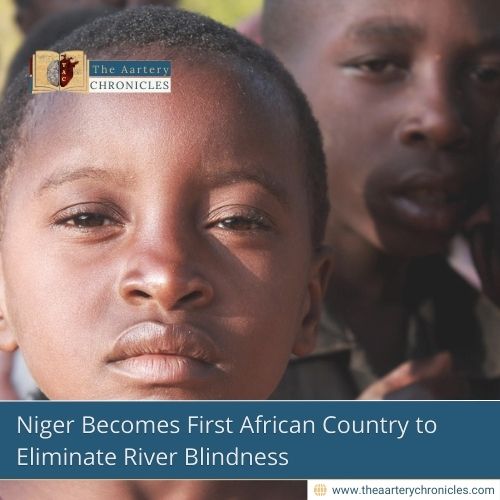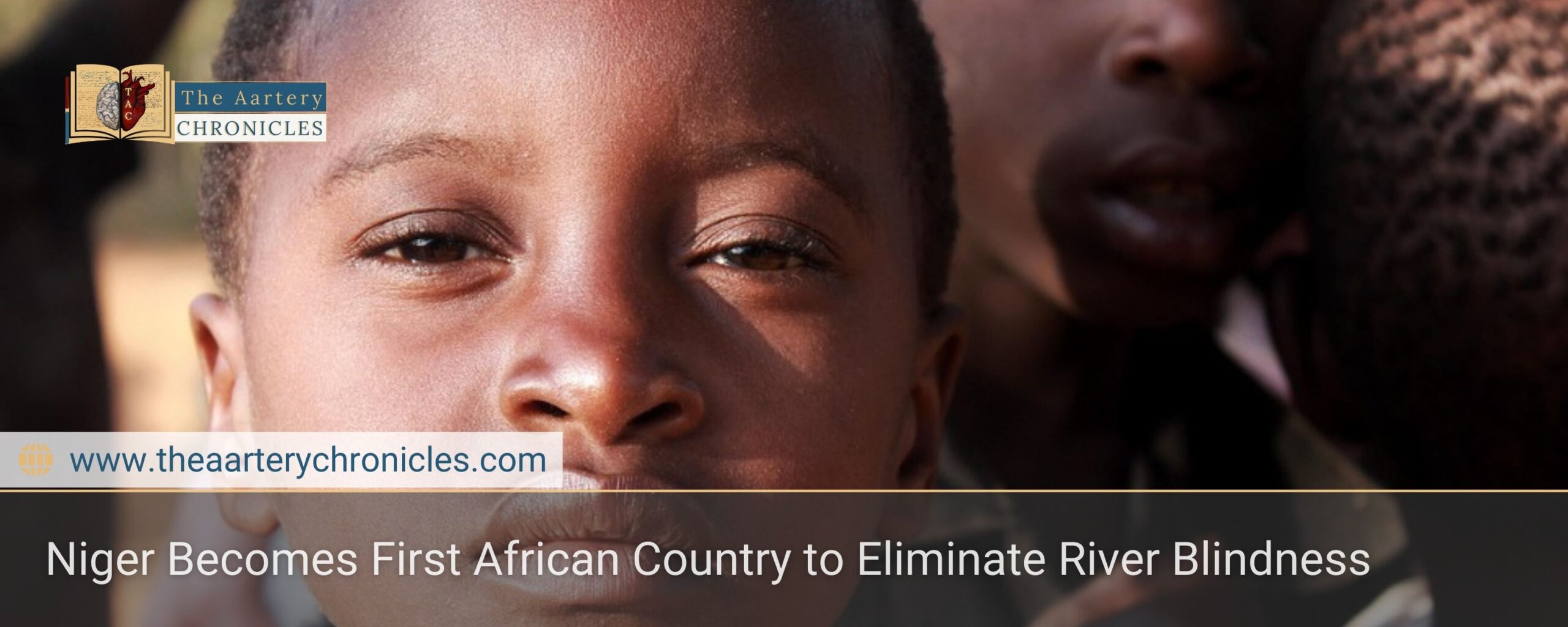

Niger Becomes First African Country to Eliminate River Blindness
The World Health Organization (WHO) has officially verified Niger as the first country in Africa to eliminate onchocerciasis, commonly known as river blindness. This makes Niger the fifth country in the world to achieve this milestone, following Colombia, Ecuador, Guatemala, and Mexico.
Dr. Tedros Adhanom Ghebreyesus, WHO Director-General, praised Niger’s achievement, highlighting the dedication and commitment required to eradicate such a disease. He emphasized that Niger’s success serves as an inspiration for other nations still battling river blindness.
Understanding Onchocerciasis (River Blindness)
River blindness is a parasitic disease caused by Onchocerca volvulus and transmitted through the bites of infected black flies, which breed in rivers and streams. It is the second most common infectious cause of blindness globally, after trachoma. The disease primarily affects people in rural areas of sub-Saharan Africa and Yemen, with smaller endemic regions in Latin America.
Symptoms of onchocerciasis include severe itching, skin damage, and vision impairment, which can lead to permanent blindness. The disease also causes significant social and economic burdens by limiting people’s ability to work and forcing communities to relocate from fertile riverbanks.
Collaboration and Strong Partnerships
Niger’s achievement was made possible through partnerships between the government, WHO, and various non-governmental organizations. These collaborations ensured access to essential medicines, technical support, and continuous disease monitoring.
Dr. Matshidiso Moeti, WHO Regional Director for Africa, emphasized that Niger’s success not only ends the burden of river blindness for its people but also sets an example for other African nations. She noted that Niger had already demonstrated its commitment to public health by eliminating Guinea-worm disease in 2013.
How Niger Achieved Elimination
Niger’s success in eliminating river blindness is the result of decades of sustained efforts, collaboration, and strategic interventions.
- Vector Control (1976–1989): Under the WHO Onchocerciasis Control Programme in West Africa, Niger used insecticide spraying to control black fly populations. This significantly reduced disease transmission.
- Mass Drug Administration (2008–2019): With the donation of ivermectin by pharmaceutical company Merck (MSD), Niger conducted large-scale treatment programs. This drug was used alongside albendazole to treat lymphatic filariasis, another neglected tropical disease. Since ivermectin is effective against both diseases, the treatment program also helped eliminate river blindness.
- Surveillance and Assessments (2014–Present): After stopping mass drug administration, Niger carried out entomological and epidemiological studies. These surveys confirmed that transmission had been successfully interrupted, with infection rates dropping from around 60% to just 0.02%.
Global Progress Against Neglected Tropical Diseases
Across the world, 54 countries have successfully eliminated at least one neglected tropical disease. In Africa, 21 countries have achieved this feat.
Niger’s recent success marks a significant step forward in the fight against river blindness, showing that with commitment, collaboration, and effective strategies, disease elimination is achievable. This milestone brings hope to other countries still working to eradicate neglected tropical diseases and improve public health outcomes for their citizens.
Source: Inputs from various media Sources

Priya Bairagi
Reviewed by Dr Aarti Nehra (MBBS, MMST)
I’m a pharmacist with a strong background in health sciences. I hold a BSc from Delhi University and a pharmacy degree from PDM University. I write articles and daily health news while interviewing doctors to bring you the latest insights. In my free time, you’ll find me at the gym or lost in a sci-fi novel.








